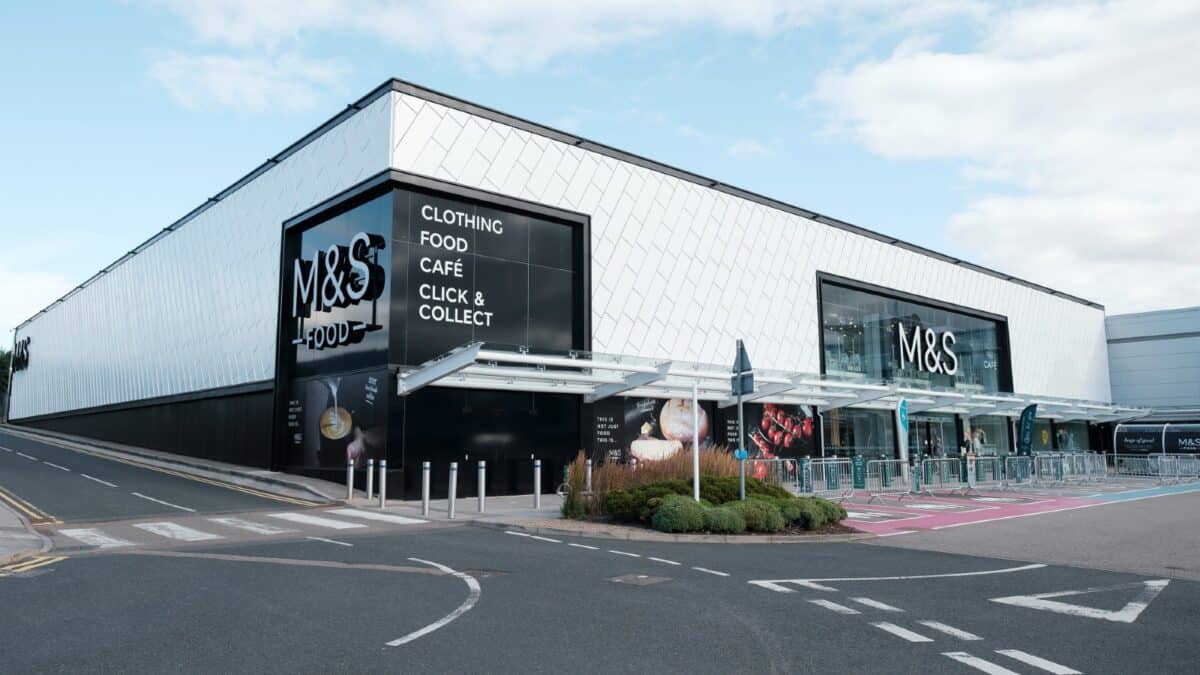It’s been some 12 months for Marks and Spencer (LSE: MKS) shares. A year ago, the beloved shop was eyeing up a return to the FTSE 100 which was then swiftly granted and followed by the share price rising from 205p to 322p today, an increase that made it the Footsie’s fifth-best performer over the period.
The share price increased by 57%, and we also have a newly reinstated dividend of 3p to factor in too. That dividend works out to less than 1% but, as one of Marks’ competitors is fond of reminding us, every little helps.
Taken together then, if I’d invested £1,000 in the shares a year ago, I’d have £1,585 today. That sounds pretty good on its own, but let’s also remember the FTSE 100 has been doing well lately and still doesn’t come close. If I’d invested £1,000 in a Footsie tracker instead, I’d have £1,101 today.
Should you invest £1,000 in Shopify right now?
When investing expert Mark Rogers has a stock tip, it can pay to listen. After all, the flagship Motley Fool Share Advisor newsletter he has run for nearly a decade has provided thousands of paying members with top stock recommendations from the UK and US markets. And right now, Mark thinks there are 6 standout stocks that investors should consider buying. Want to see if Shopify made the list?
Splendid strategy
The key to understanding this growth is also the reason why I, not an M&S shareholder at the moment, am looking at opening a position, and that’s down to its food sales. The firm has landed on a splendid strategy of still targetting the higher end of the market while also edging into the lower end with its value-priced “Remarksable” range – an impressive move even if I doubt I’ll ever be impressed by that contrived portmanteau.
Food is dominating its trading statements too. Food revenue came in at £8.2bn for full year 2024 compared to £3.8bn in Clothing & Home. So its grocery section is becoming the exciting cornerstone of a business more known for practical if unexciting casual wear. Food volume rose 6.8% too with total revenue up 9.3%. And the number of new M&S food stores is even outpacing full-line stores.
And what’s really promising is the differing fortunes of some of its rivals in the grocery sector. Asda seems to be in crisis mode with sales continually slumping. Its chairman called the latest results “embarrassing”. I’d call them “unsurprising” given the state of the shop last time I went to an Asda.
The big two of Sainsbury’s and Tesco have both had their best years in a while and yet share prices remained mostly unmoved for the former, up 3%, and some way off the performance of M&S in the latter’s case, up 37%.
Things to come
As for risks, the cost of living crisis might hurt the most expensive company in the sector. Yes, Marks has a value range, but it still makes for a pricey shopping basket. And inflation might have lowered but that doesn’t mean prices are coming down, they’re just going up more slowly. If belts need to get tighter, then Brits might want to shop somewhere less “Remarksable” and more, well, cheap.
What it all comes down to is that Marks and Spencer’s terrific year might be a sign of promising things to come. I won’t expect another 57% increase, but looking at this with a Foolish long-term mindset, I think the stock has every chance to beat the market in the years to come. I’ll look at buying the shares in the near future.








